Thesis graduates Technoprojects, spring 2018
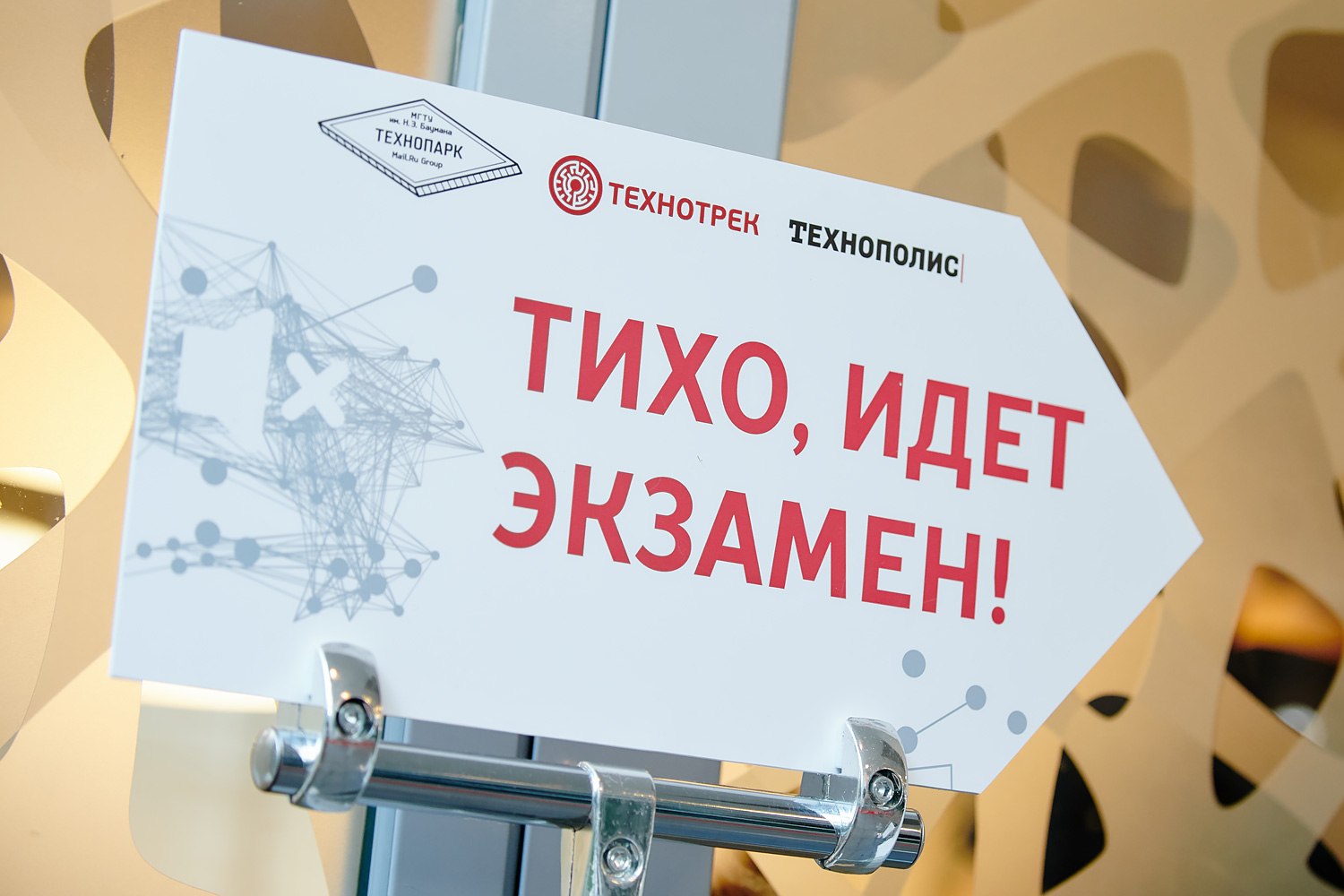
Twice a year we recruit students to our Technoprojects, and twice a year we release the best of them only after defending a graduation project proving that it was not for nothing that they absorbed IT wisdom for two years. On May 22, another defense took place, at which, besides graduates of Technopark (MSTU), Technotrak (MIPT) and Technoatom (MEPI), the guys from our Technopolis (St. Petersburg Polytechnic University named after Peter the Great) also performed. And another innovation of this protection was 4 graduation projects that were made jointly by students from Russian universities and students of the Worcester Polytechnic Institute (Massachusetts, USA). And today we will talk about the six most interesting graduation projects of this protection.
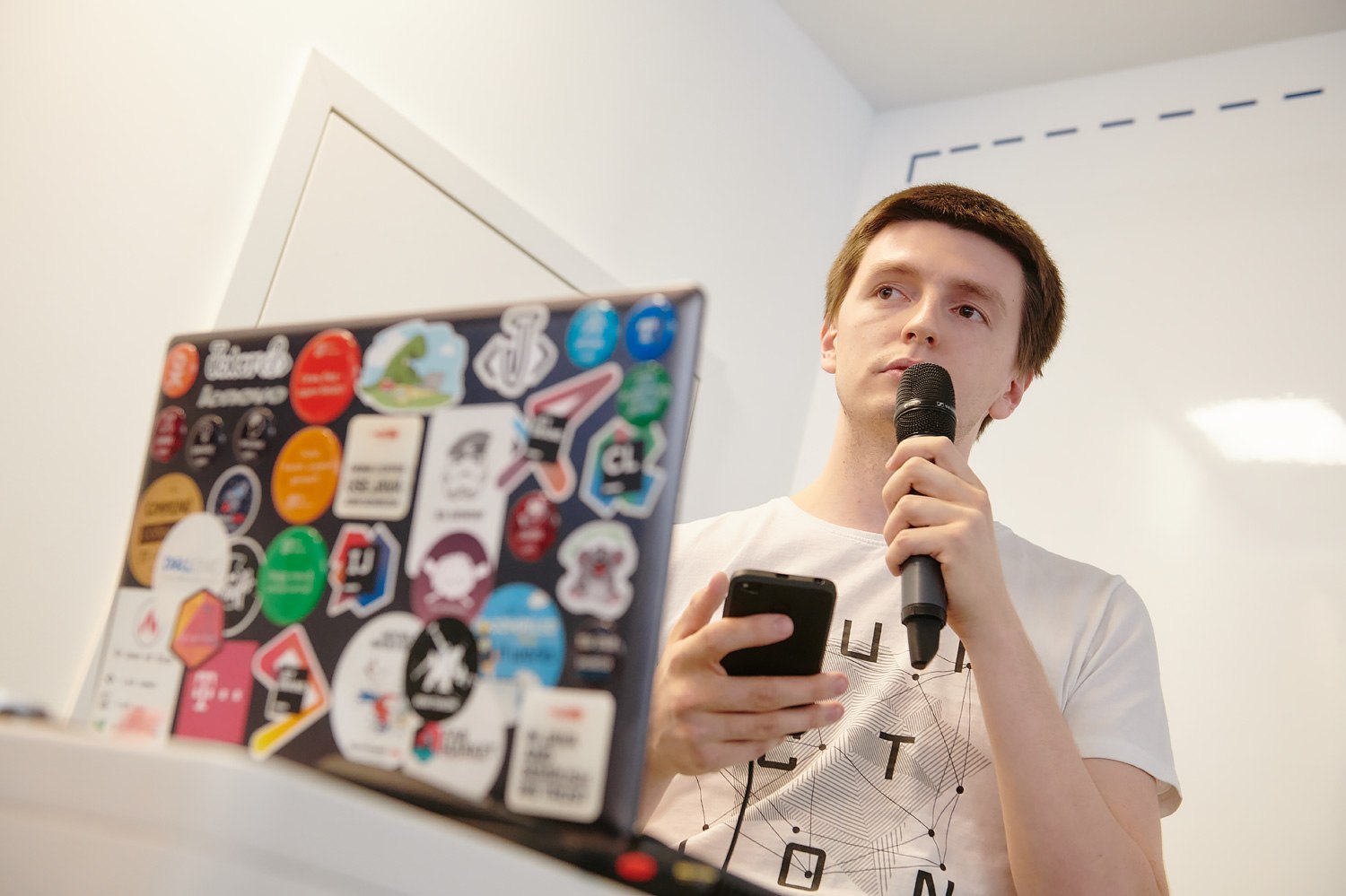
In total, 39 graduates participated in the defense in 15 teams.
MontSmart - advertising assistant for business
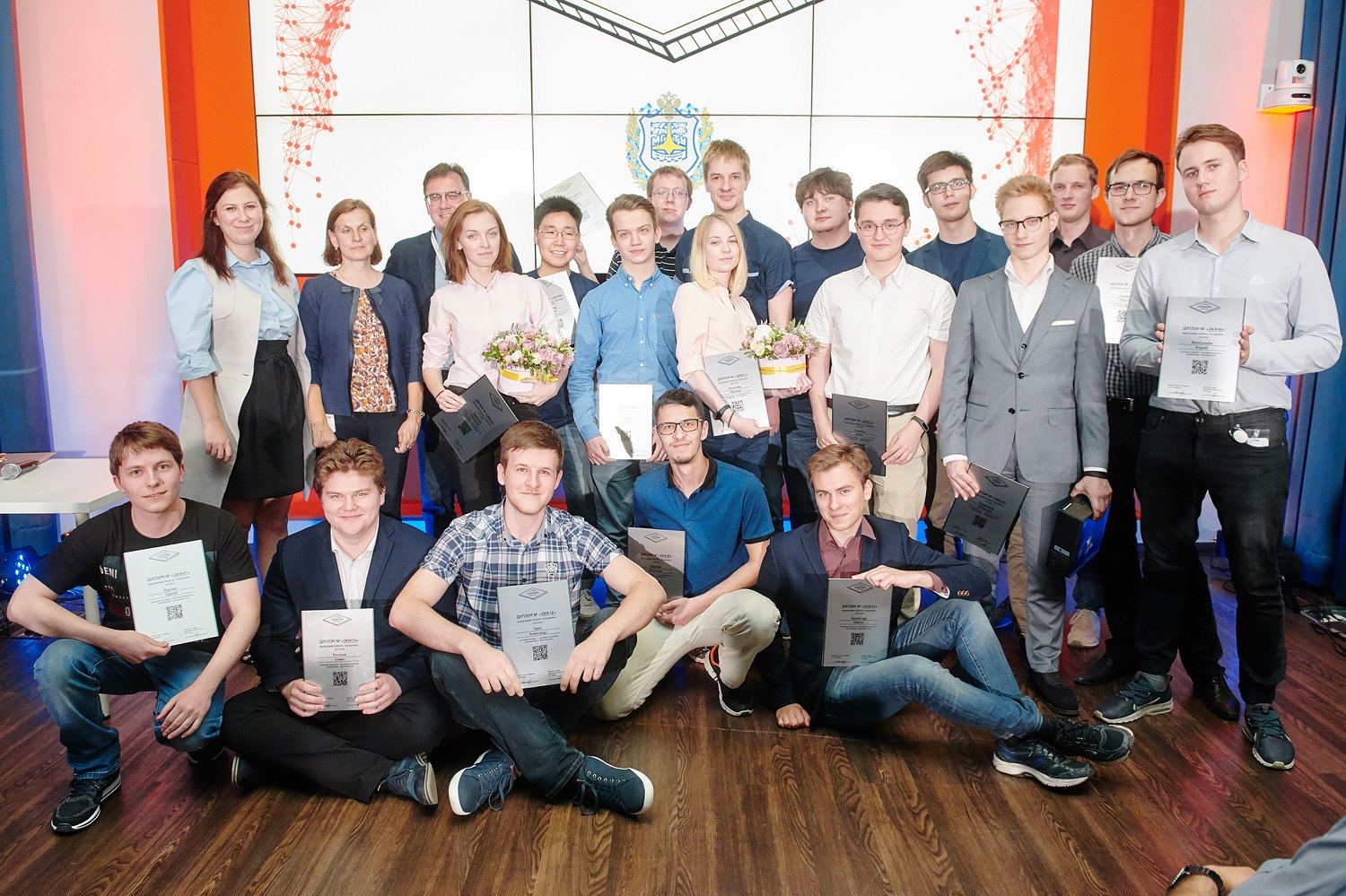
So far, business development has not come up with anything better than advertising. And one of the most effective ways to promote today is advertising in social networks and blogs. But business and bloggers find it difficult to speak the same language, it is difficult to find each other. MontSmart is an intermediary service, a bridge between two worlds, so necessary for each other. It allows you to save the advertiser from the headaches of searching for bloggers to advertise.
The service automatically selects bloggers from various fields and includes them in an advertising campaign generated on the basis of specified indicators. After moderation (while manual, but the process is already being automated), a notification with a proposal is sent to the advertiser. He agrees or comments. After approval, contracts are signed, expenses are paid and order execution begins. The scheduled service makes screenshots of posts on social networks (since some posts are deleted after 24 hours) as confirmation of order fulfillment. During and after the campaign, metrics are collected and analyzed, after which a new, improved campaign is proposed.
As part of the project, the guys created two client parts (for performers and advertisers), a full backend on microservices (13 pcs.) And a logging system using Telegram bots.
The architecture of the project and a set of technologies inspire:
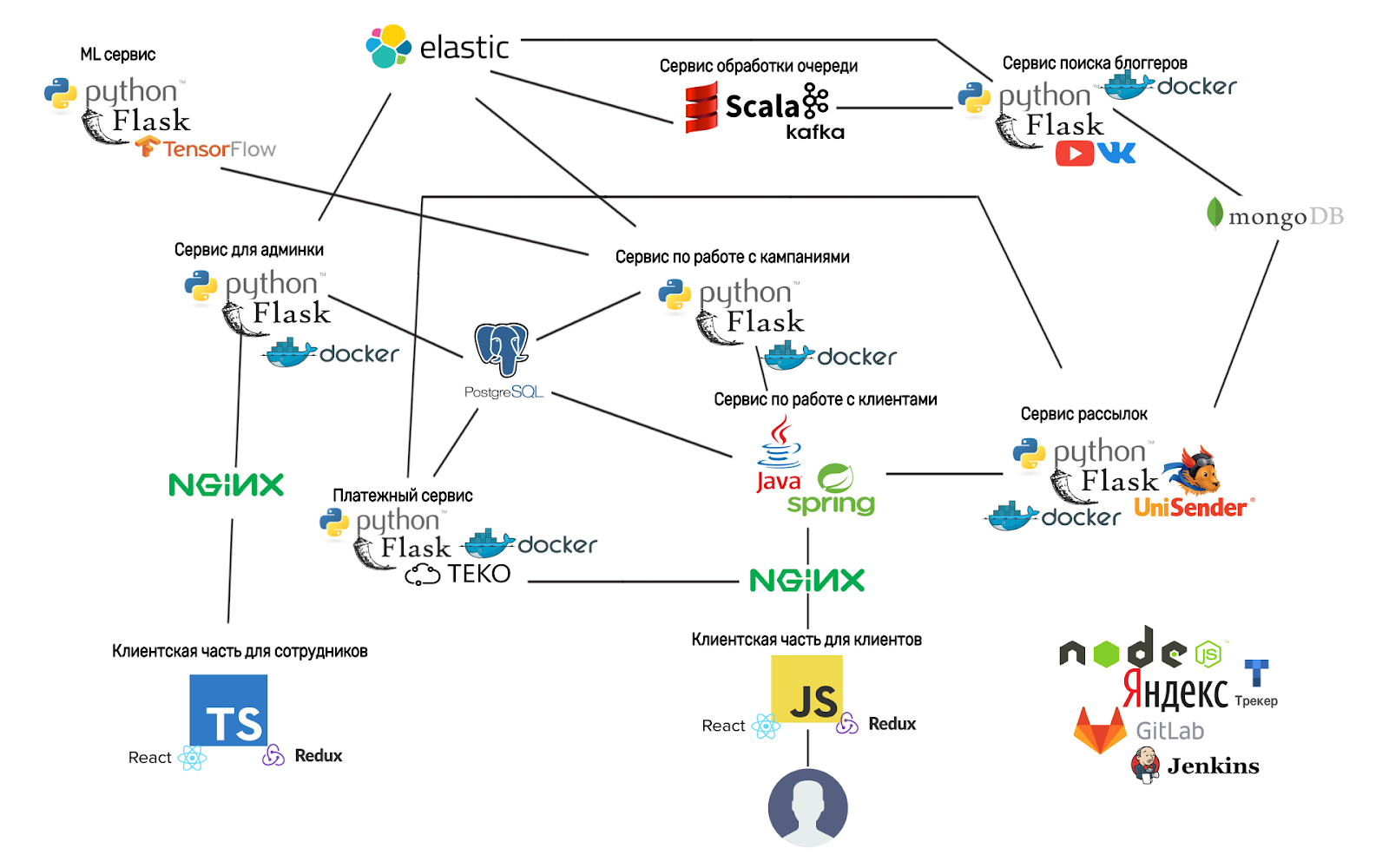
The authors of the project: Vladislav Pereskokov, Ekaterina Semenova and Anton Semenov.
Scorottets - online service for teaching speed reading
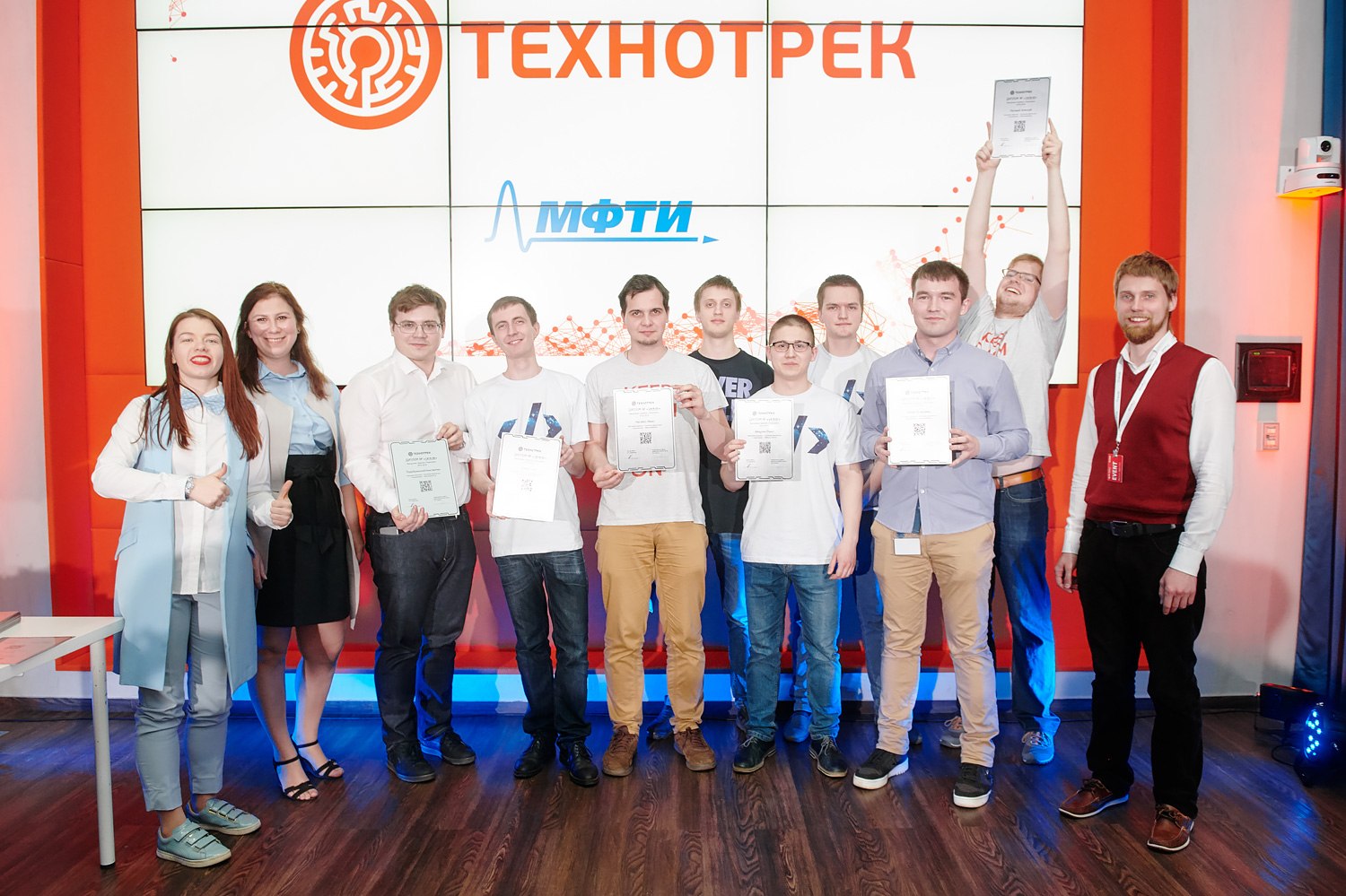
Most people can not boast of high speed reading. Many of us read even slower than at school. We go back and reread some sentences, distract ourselves to external factors, internally pronounce words. And generally we badly remember the read. And those who are trying to master speed reading often face a lack of self-discipline in order to regularly perform exercises in the “paper” version. Ivan Makeev and Egor Komarov have developed an online service for teaching speed reading. Exercises, training program, materials, automated progress tracking: everything is ready for you - just go in and train! Skorochets was created in order to help not only learn to thresh 300-400 words per minute, but it is better to remember what you read. Otherwise, why bother to read?
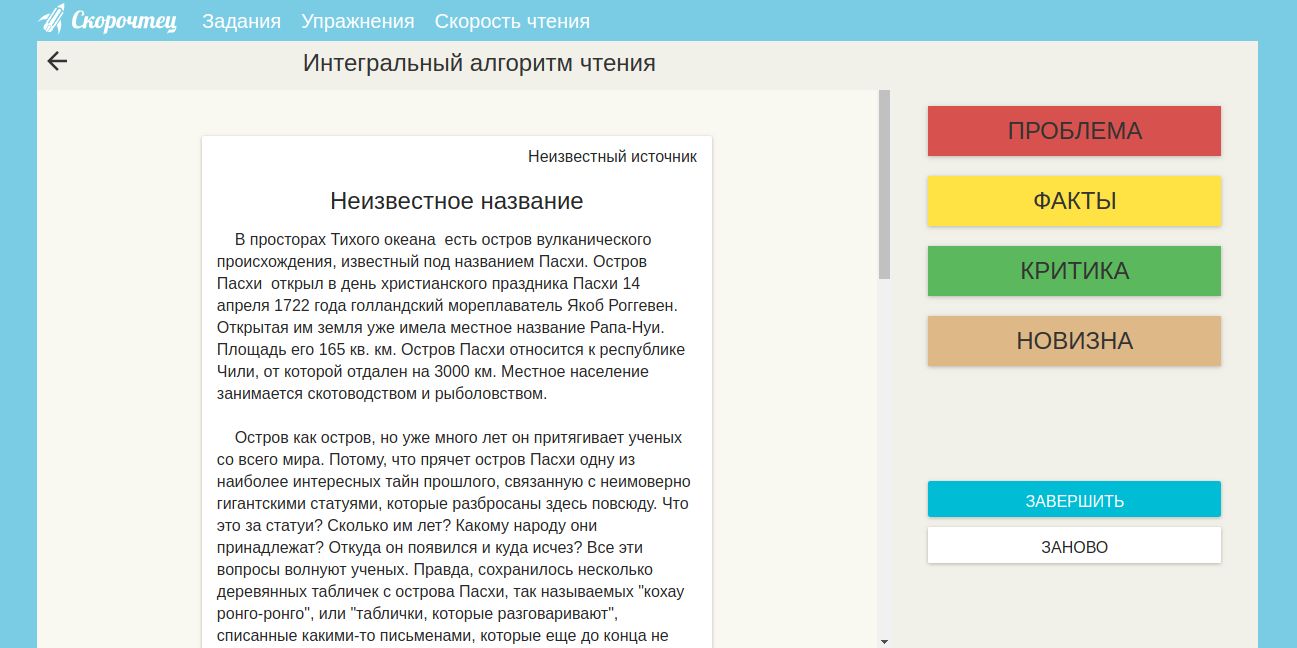
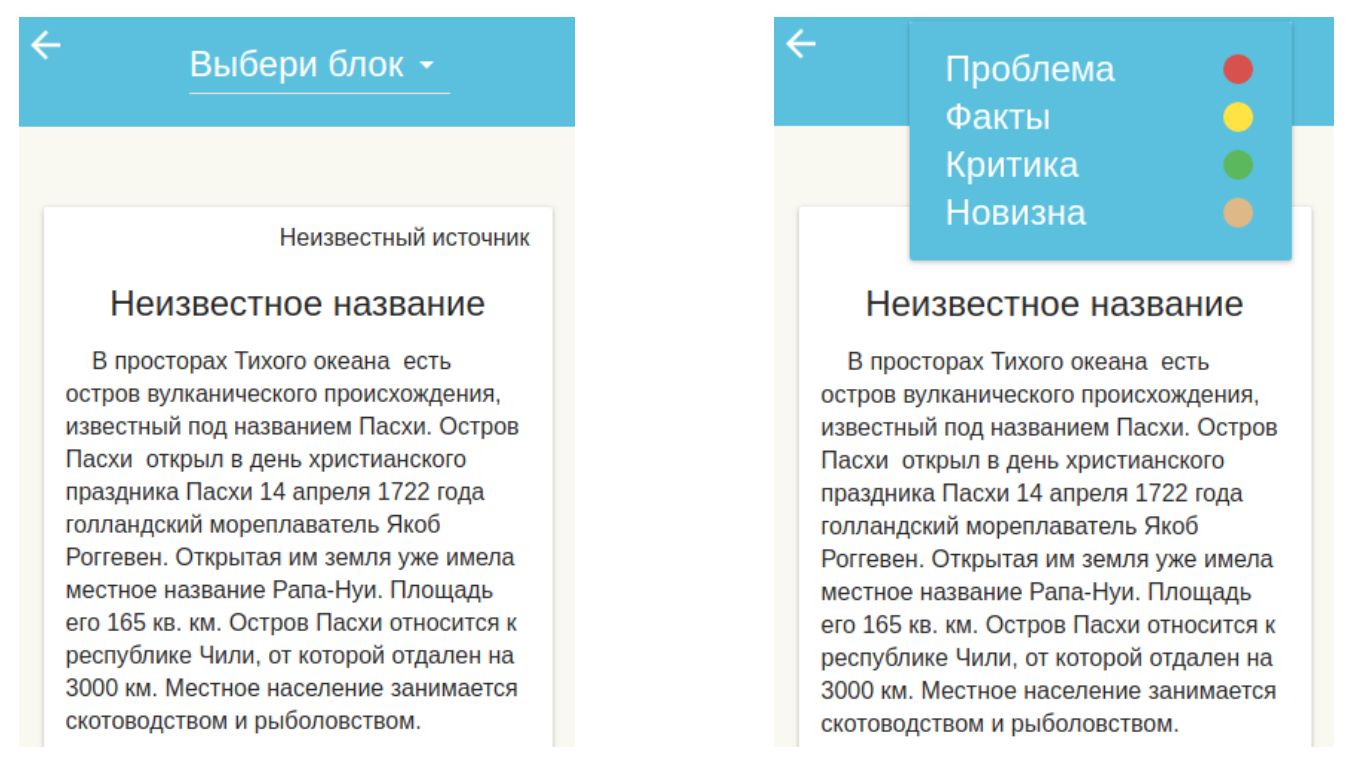
The service is written within the framework of the one-page application paradigm (SPA). Under the hood he has such a set of technologies: PostgreSQL, the backend is Django, the frontend is React / Redux. Ivan owns the very idea of the service, he was responsible for the frontend, and Egor for the backend. Skorottets did not die at the stage of the graduation project, it is developing, the team will expand, and now the developers are trying to get funding in one of the startup acceleration programs. If you want to be a part of the project (the guys need frontends), send information about yourself to makeev [dog] phystech.edu.
VK Disk - an application for working with documents in "VKontakte"
Obviously, VKontakte was created for whatever purposes, but certainly not for working with documents. Of course, over time, almost any application and service acquires additional features, but the functionality of working with documents in this social network is rudimentary. Since the authors of the project do not work in VKontakte, they decided to “close” the missing functionality using VK Disk - an external web and Android application that implements a global search on all of its documents, filters (by chat, by document type, etc. .), sorting (by date, title, etc.), parsing messages for documents. The service scans the user's documents, and then downloads them from the social network to its cloud, where all the subsequent work with documents goes. Moreover, the guys screwed machine learning to determine the pictures in the documents, text on pictures, text search and other tasks. All this abundance of functions was chosen not just like that, but after interviewing numerous users of the social network that they lack in working with VKontakte documents.
VK Disk was created as an international project. The fact is that we launched an experiment on the cooperation of students of our educational Technoprojects with students of the Worchester Polytechnic Institute (WPI, USA). Americans, along with students of Moscow State Technical University. N. E. Bauman and MIPT worked on their graduation projects as part of the educational programs Technopark and Tehnotrek . In the case of VK Disk, our guys were responsible for creating the applications themselves, the REST API and machine learning, and the Americans sketched for interface design and tested the product.
Demo video:
Technology stack:
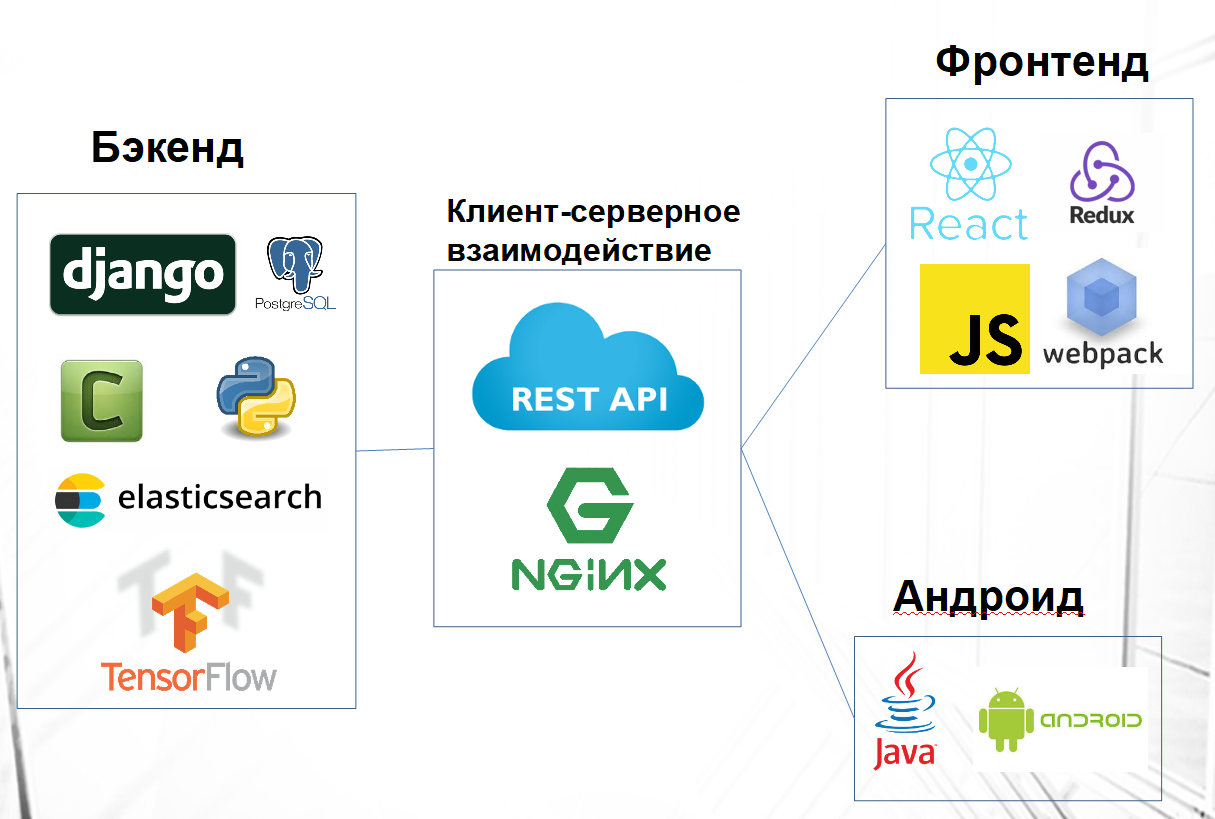
Project authors: Alexey Lesovoy, Vladimir Panov, Ivan Nagayko, Konstantin Pobryansky.
AR functionality for OK Live
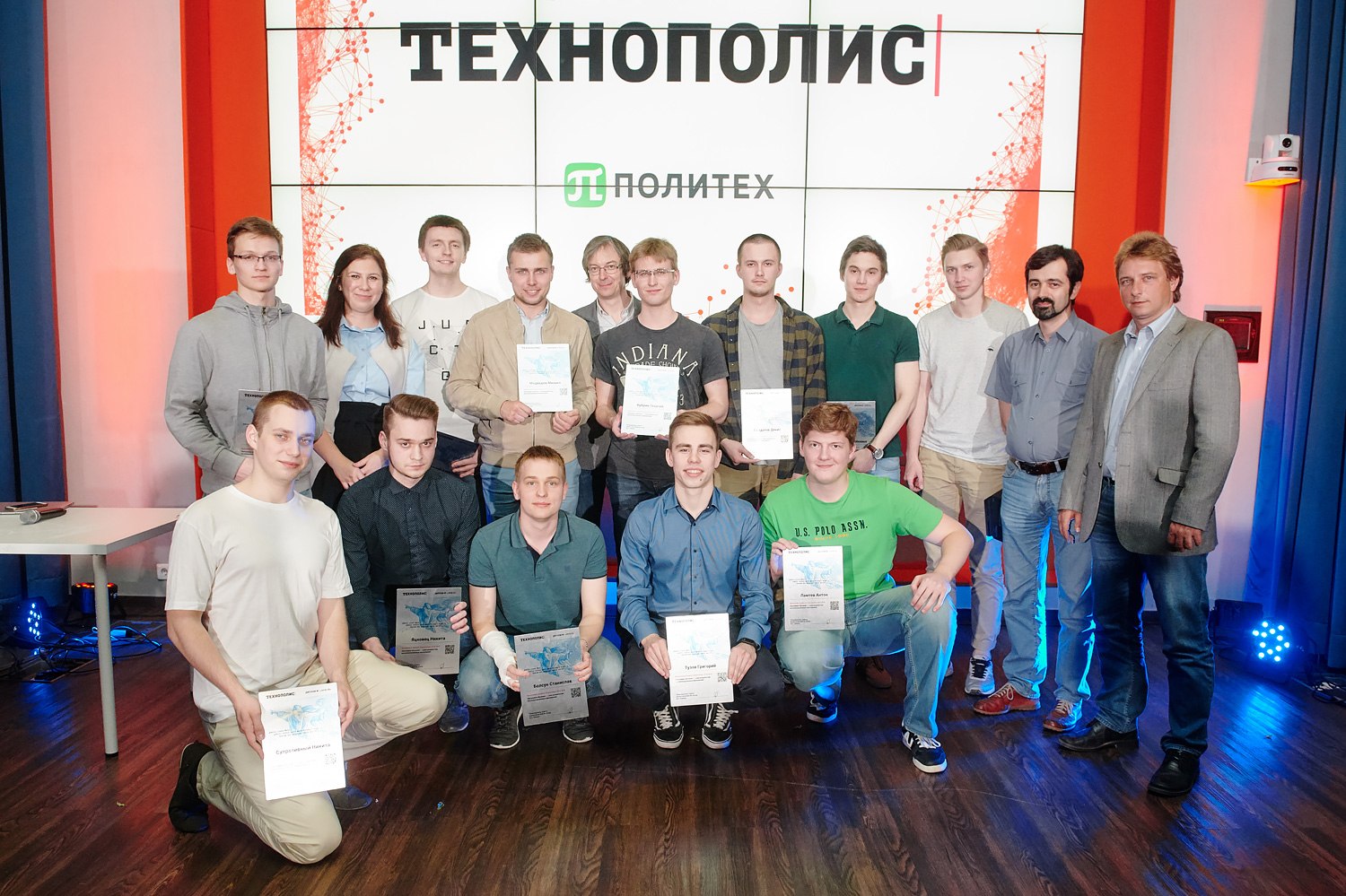
Many people believe that the future is mobile AR / VR technologies. This view is shared by Anton Lamtev, who single-handedly implemented the functionality of augmented reality for the OK Live iOS application. The application already has a function of virtual masks that users can put on themselves during the broadcast. But by the standards of 2018, this is not enough, and Anton was tasked with introducing managed three-dimensional objects into the video stream that are loaded via the network.
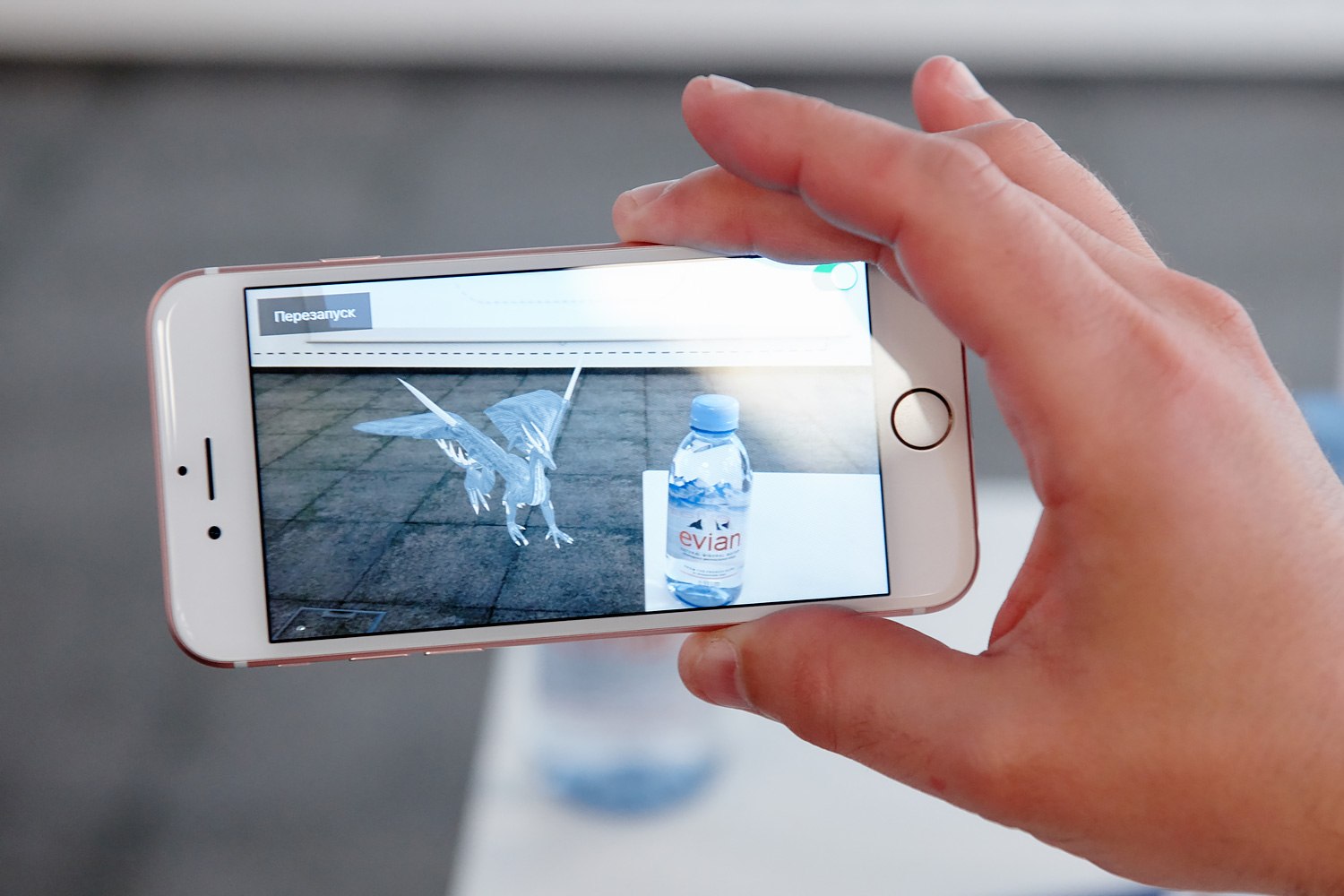
ARKit and the low-level OpenGL ES library are used for rendering. The user can "put" on a real surface or at an arbitrary point in space a three-dimensional object that can be circumvented and viewed from all sides. Along the way, Anton had to implement a converter that converts too “heavy” models into more lightweight, affordable ones for filling smartphones.
WalkMe - an application for building routes for walking
Walking is useful, we are told about this from childhood. And if in the same childhood there were no problems with maintaining health, then after receiving a passport, we are often too keen on public and personal transport. And when it comes to walking, especially if you come to a new city for yourself, we find a lot of excuses why not to do it. And in vain.
The authors of the WalkMe application decided to “nullify” some of the excuses: “there is no time to plan a walk,” “too much information needs to be shoveled,” “I am afraid of getting lost.” It is enough to enter your wishes into WalkMe, and in accordance with them, the application itself will build the route of the walk, using the database of all sorts of places and objects, divided into categories. And dozens or hundreds of routes are generated at once, but one of them is randomly selected and offered to the user. That is, you can never predict where WalkMe will lead you.
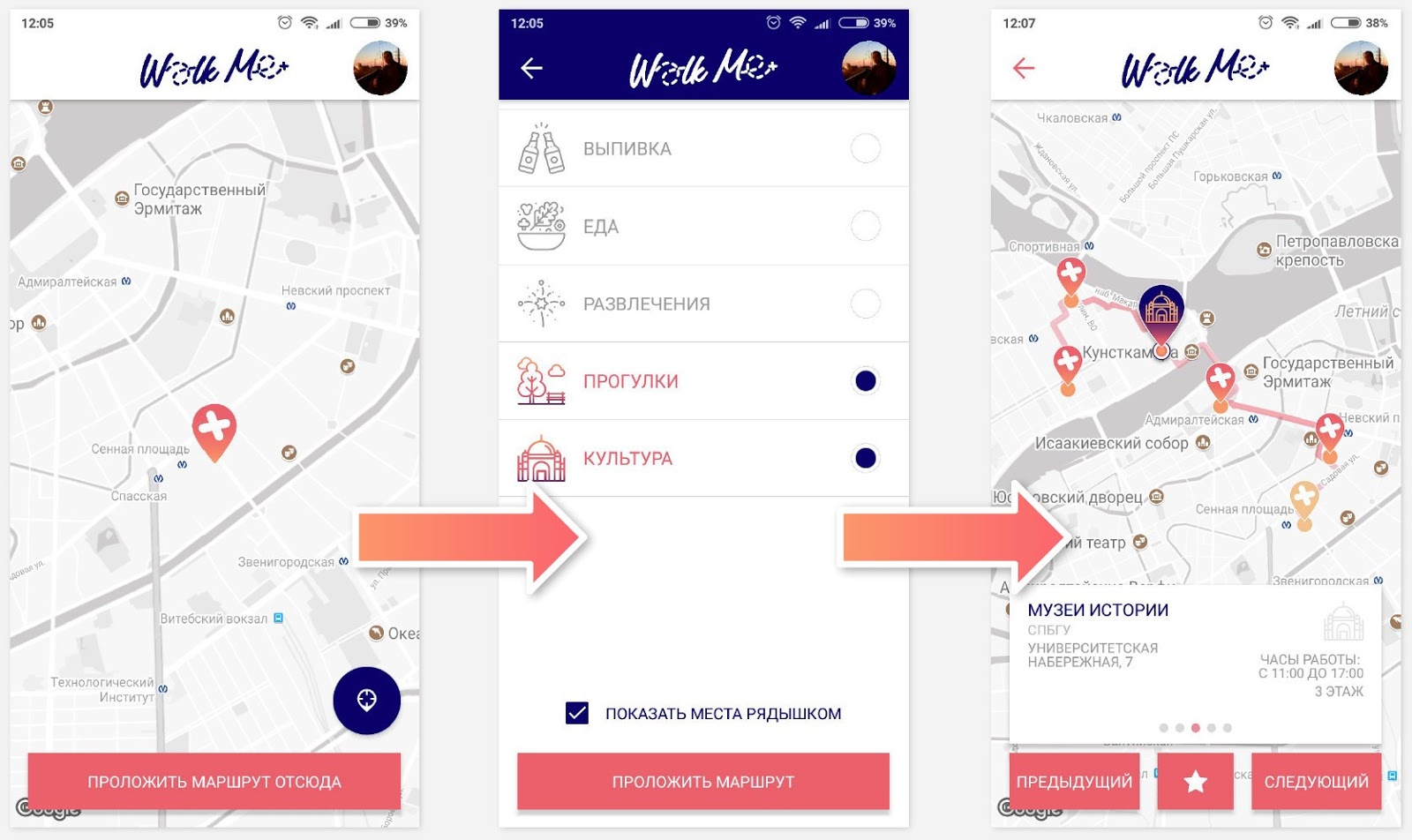
So far, WalkMe has recorded 26,000 places and objects in Moscow and St. Petersburg, but nothing prevents us from expanding the database with information on virtually any city in the world.
Technology stack:
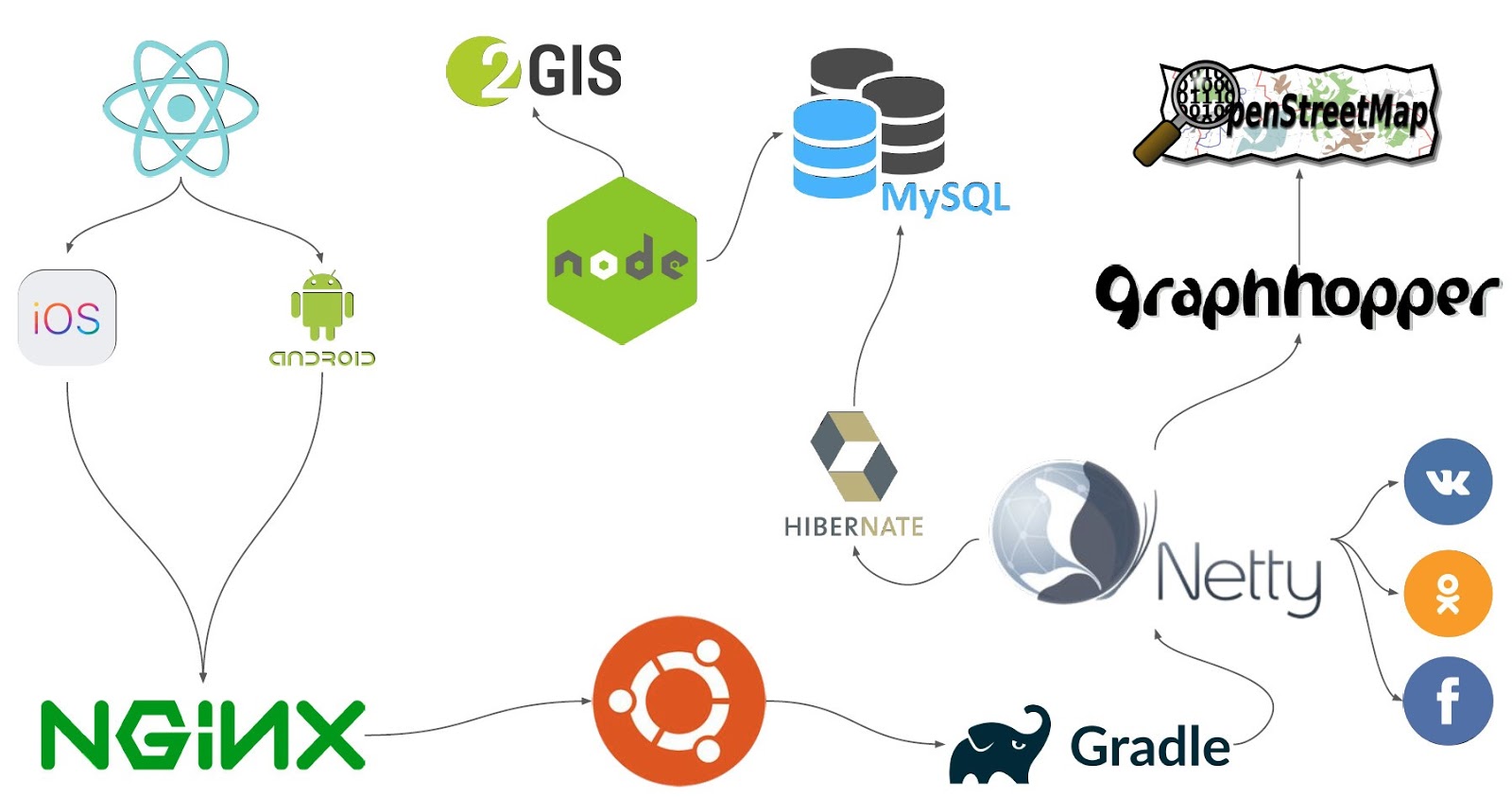
Authors of the project: Alexey Filippov, Denis Soldatov and Nikita Yackovets.
Event Horizon - service recommendation music events
Fans of live music regularly encounter such situations: walking around the city, saw a poster of an interesting group, and the concert has already passed, it turns out. Or you are looking for tickets to any of the nearest concerts on the Internet, and the devil knows what to offer. Or you know where you want to go, and you can buy a ticket, but there is no company, but you don’t want to go alone.
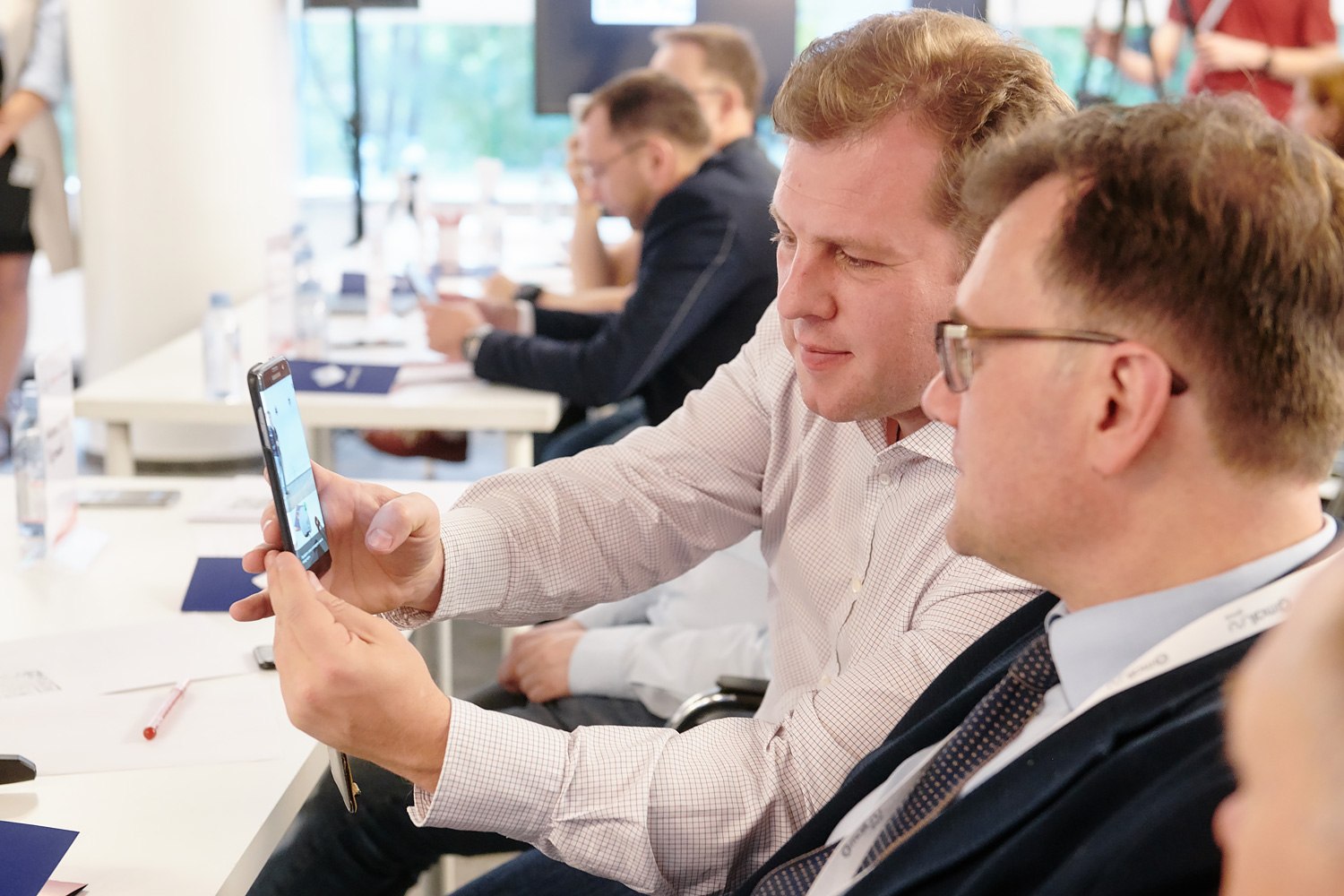
At the core of Event Horizon is the idea of collecting data on the user's musical preferences. Statistics of listening to music in “Odnoklassniki” and “VKontakte” is taken into account, whether the user is in the public of any musical group or performer - the service receives data on closed API. It also takes into account whether the user put likes under the posts of some artists on Facebook and Twitter. What if the user is beech and spat on the social network? The service finds out that the user is listening in iTunes and Apple Music; in the case of Android, it simply scans the music files stored on the phone. And at the same time gathers information about upcoming events from Kassir.ru and Yandex. Posters. And then there is the matter of technology and algorithms - to link tastes with the nearest concerts.
The project was quite extensive: a web version of the service and two mobile applications. Information about the interests of the user is collected using the API of various social networks, Apple Music and iTunes. Android and web applications use SPA with a frontend on Vue.js. Native iOS-application can collect data from iTunes, and Android-client - about local music files. Event information is pulled using the Puppeteer library, processed by the Go service and sent to the Java backend in the Spring framework. Database - PostgreSQL. The backend forms event tapes and gives them to client applications via Nginx. Docker was used for deployment.
And all this had to be realized in three months in order to be in time for protection.
Interconnection of components and technologies:
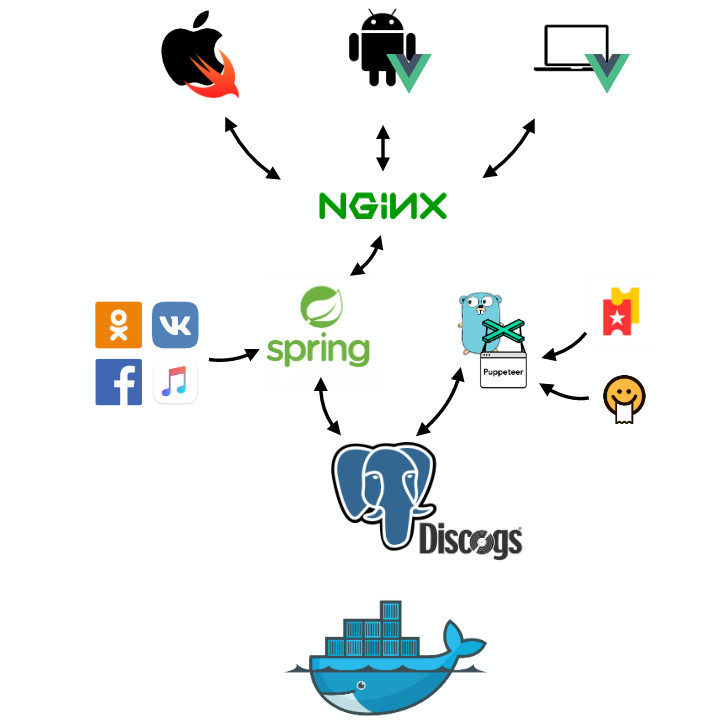
According to the team members, first of all, the work on the project gave them not only useful development experience, including mobile, but also teamwork experience. And this is almost the main skill in life - without the ability to interact, it is unlikely that you will be able to achieve anything in any sphere.
Project authors: Stanislav Bolsun, Mikhail Burmistrov and Oleg Romanov.
